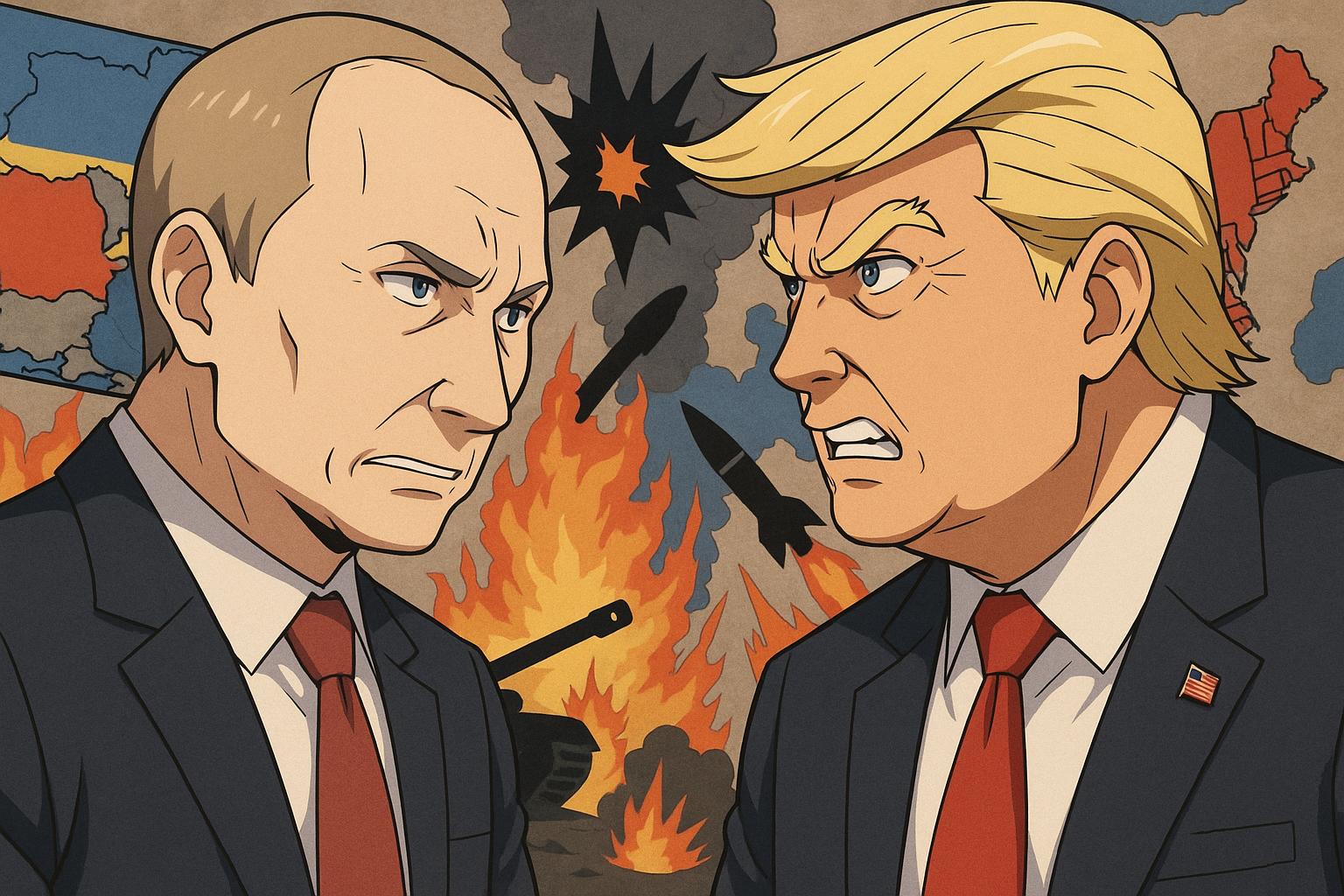Donald Trump’s recent comments about negotiating with Vladimir Putin have sparked renewed debates regarding the United States’ role in the ongoing conflict in Ukraine. Following a missed opportunity to engage in peace talks, Trump stated, “Nothing’s going to happen until Putin and I get together.” This reflects a misguided sentiment that the path to resolution hinges solely on direct dialogue, even as the outcomes of such conversations often prove elusive.
During a two-hour phone call with Putin, Trump suggested that negotiations were to commence; however, his approach reveals a concerning hesitance to apply the necessary pressure that analysts argue is crucial for eliciting genuine concessions from the Kremlin. The former president appeared to step back from the US's important role, opting instead to allow Kyiv and Moscow to handle their negotiations independently. This reluctance raises grave concerns as reports indicate Russian forces may be gaining an upper hand on the battlefield. Many observers argue that Trump's strategy inadvertently emboldens Putin, potentially enabling Russia to continue its military aggression with lesser risks of US intervention.
In this fraught atmosphere, congressional voices have begun to express mounting frustration. As the administration assesses its strategy, lawmakers are proposing bold measures intended to apply significant pressure on Russia. A recent bill suggested implementing an astounding 500 per cent tariff on imports from nations purchasing Russian oil or gas, should there be no notable movement towards peace talks. While this legislative initiative aims to enhance the president's bargaining power, it carries alarming risks of instigating wider economic turmoil—concerns that economic analysts have voiced regarding the potential for unintended ramifications on global energy markets.
European nations, too, find themselves wrestling with their own strategies. Faced with the prospect of US withdrawal from a leading role in supporting Ukraine, discussions have arisen around guaranteeing arms supplies reach Kyiv through alternative means, including direct procurement from American manufacturers. If the US pulls back from its commitments, Europe must not only acquire military supplies but also intensify economic sanctions against Russia. Recent efforts have aimed at fortifying these sanctions, targeting Russian tankers involved in evading the oil export price cap, with effects anticipated to impair Russia’s wartime economy.
Amid these legislative discussions, movement towards peace has surfaced. By early 2025, Trump’s administration announced that negotiations with Putin would commence, potentially laying the groundwork for a de-escalation framework. Ukrainian President Volodymyr Zelenskyy exhibited cautious optimism about initial talks that included proposals for a temporary cessation of hostilities. However, significant apprehensions linger regarding a negotiation process that appears overly focused on US and Russian interests, potentially marginalising Ukraine's sovereignty and territorial rights.
As discussions progress, European and Ukrainian officials remain acutely aware of the stakes involved. There is a tangible trepidation that Ukraine could be sidelined from a resolution crafted to serve broader geopolitical agendas while neglecting its pressing need for security and autonomy. The balance of power is precarious, and both sides are called upon to maintain a united front in negotiations.
Ultimately, while the notion of peace talks may present a flicker of hope, the complexity of the situation accentuates the intricate dynamics at play, as the interests of various stakeholders clash. A robust and unwavering effort from the US, Congress, and Ukraine’s allies is essential to ensure that support translates into action, preventing not just a potential betrayal of Ukraine but also averting a destabilised European security landscape.
Source: Noah Wire Services
